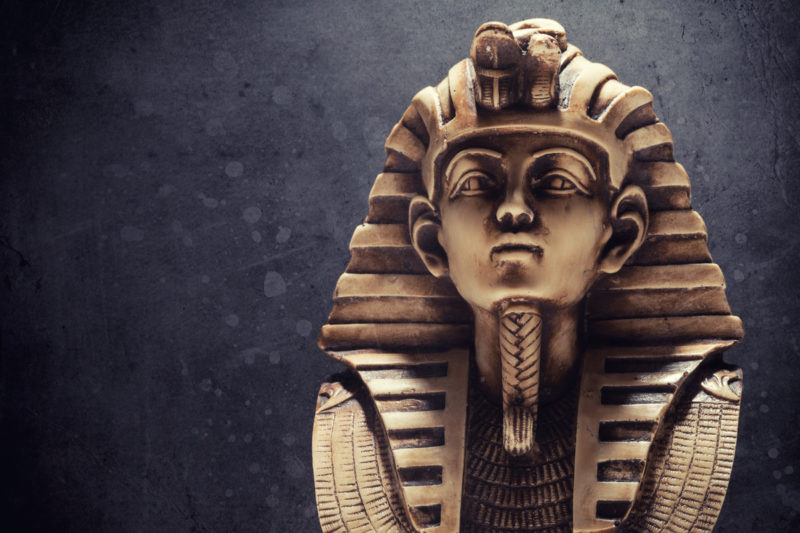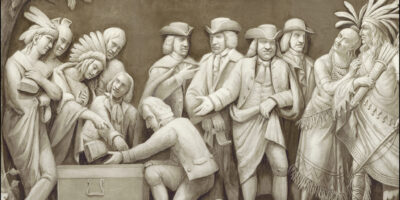The Reprise of the Personal State

In Aristotle’s endless quest to create taxonomies of everything, he looked at types of political systems. His book Politics makes for a fascinating study, even today. And yet there is a cleaner model that reveals much about the world in which we live. The first time I ran across it was in Martin de Creveld’s Rise and Decline of the State. He distinguishes between the personal state and the nation state. The distinction is both historical and theoretical.
Why it matters in our time: it reveals a primary underlying struggle in our age. The nation state is failing. Growing populist pressure is pushing for the nation state to be converted to a personal state of either rightist or leftist ideology. But such a state is both anachronistic and destined to fail in an even worse way. Both forms of states are a threat to liberty but each poses particular dangers.
Consider first the personal state. Think of Pharaohs, Caesars, Chieftains, Emperors, and Kings of old. However they gained control – gradual acquiescence to leadership qualities, religious attachment, or outright military conquest – the personal state exalts the great man as the embodiment of the spirit of a people. The achievements of the people under his control are his achievements, while the failures are always due to outsiders. He is a source of world salvation and sometimes transcendent immortality. The chant is always that he lives a long life and the mourning at his death is overwhelming.
In the personal state, those who fight in the military are under one man’s employ. So too the tax collectors, censors, and security forces. Even the clerical class is subsumed under the head of state. There is no limit to the power of the personal state, which is to say the power of the single man.
And now to the crucial test of the personal state: what happens to the state when the great man dies? If the state dies with him, it is a personal state. If the blade falls on his head, the state itself goes down with him. This is because the state works directly for him; in his absence, the state becomes unmoored and lacking in any legitimacy. Political instability is the result, with factions vying to take its place, unless, for example, there is a tradition of clear succession: the powers of the king are passed to his son, and so on.
Personal states began to pass from the historical stage in the Middle Ages, gradually to be replaced in the European context with a new creation called the nation state. Part of the reason was expediency: power well exercised cannot have a single point of failure. With the building of the nation state, free trade replaced mercantilism; perks and privileges of the ruling class spread out from the center to the lower orders; administrative heads replaced dictators.
The nation state has a different structure entirely. It is still powerful but not all power rests in one man. It has a bureaucracy with existential legitimacy apart from the executive. By design it is supposed to be immortal. The king dies but the bureaucracy lives. The monarch passes but the military still rules. The prince falls but the tax collections continue. National state power is dispersed among a ruling class that shares powers while still employing a spokesman or executive but the state’s power is not contingent on the life of the executive. It is unkillable.
A nation state depends on some codification of power outside the will of the executive. It could be a constitution. It could be an entrenched tradition. It could merely be a body of law. It could be a regulatory code. Whatever it is, the purpose is to detach the ability of a state bureaucracy to manage society with or without having the boss around. In the nation state model, every elected or appointed official could hop on a boat to China and the taxes would still be collected, the edicts enforced, the jail sentences handed down, and the wars would keep being fought.
The innovation of the nation state was the creation of a “deep state” that operates outside the control of the executive. There is nothing shocking about this; it’s by design, a method of limiting the centralization of power. The deep state is nothing one needs to unearth with a conspiracy theory; it is right there before you in the concrete structures that house the permanent public sector and are populated by endless workers that are neither elected nor appointed by those who are elected.
Note that decentralizing power within the state does not mean reducing it. Personal states are limited in some ways, simply because no one man can in practice control all things. The attempt often feels like, in the words of Nikita Khrushchev, trying to shape a tub of dough. Dictatorships are often limited by the volition of the subjects: they will not finally be caged under the control of a single will. What’s more, nation states develop oppressive bureaucracies, maddening systems of change, networks of graft and corruption, armies of hangers on who are there just to live off the system while bearing no accountability for the results.
Modernity has mostly only known nation states but with some exceptions. Every Soviet leader gradually tried to turn the socialist nation state into an extension of his own will, but no leader succeeded in doing so. The deeper regime apparatus always fought back. So too with Hitler under the Nazis but not even he could control the whole under his thumb, despite every attempt. The rest of the famous thugs from that period tried their best to create personal states, but never finally succeeded in recreating that which had long passed from history.
With this model in mind, how do we understand the current moment? The nation state with its litany of petty oppressions are massively under pressure from public protests all over the world. Try to raise the gas tax and Paris erupts. Raise subway fares in Chile and people hit the streets. Threaten extradition in Hong Kong and the population screams no. Try to tax phone calls in Lebanon and the mobs lose their minds and demand it stop. Behind all these protests are deeper frustrations about corruption, ruling class entrenchment, favoritism, and economic stagnation.
This is all relatively new. These are signs of the passing of a paradigm, the stresses of an old orthodoxy becoming something new. The trouble is that no one agrees on what that something new should be.
Here are all opportunities for the would-be head of new personal states to come into existence. They’d promise an end to the corruption of the old forms and the emergence of a new form under their total control. Think of Commodus in the movie Gladiator when he complained of the corruption of the Senate, or Bane in Batman saying true things about the failures of the current system. The incredibly obvious failures of the nation state are paving the way for new personal states both from the left and right.
This is the direction that American politics is taking us. Great leaders, grand visions, personally imposed plans. Warren and Trump seem completely different but their aspirations are similarly reactionary, to go back to when societies were ruled by an iron fist in service of one person’s vision for what should be. Our role as voters is to pick between two forms of power that disempower the rest of us.
It’s the resurrection of the personal state to displace the failed nation state, but it is sure to be followed by a failed personal state to be displaced by a revived nation state. And so on.
We need to leave this cycle of abuse. There are terrible features to all forms of states. We should not limit our longings to a selection of brands of oppression. The best idea of modernity was neither the personal nor nation state but the idea of human freedom, the conviction that societies and economies thrive most when left alone by bureaucracies and dictators. Even better, get rid of the structures of power completely. The only immortal thing ought to be the right of everyone to live a dignified life in freedom.










